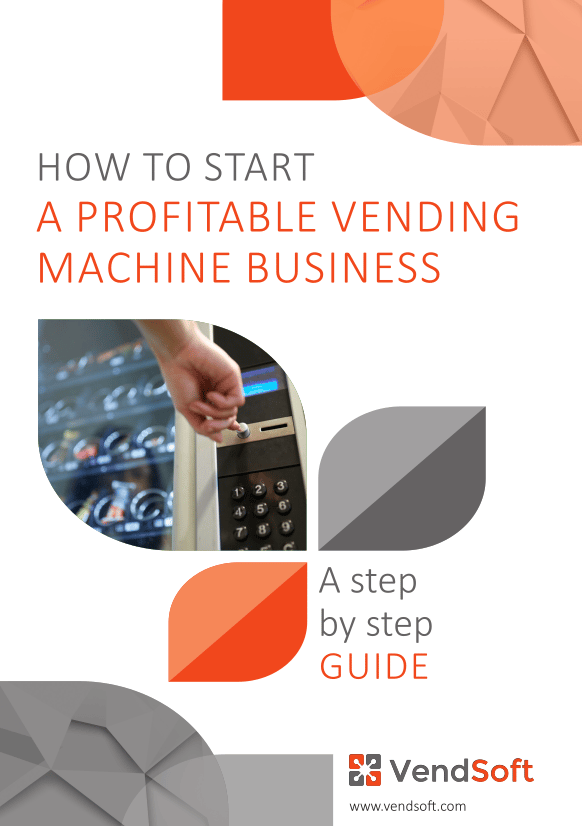Whether you’re placing one vending machine or managing an entire fleet, a clear contract is essential when working with property owners. A well-written agreement protects both you and your partner, outlines expectations, and helps avoid disputes down the line.

Vending Machine Contract Guide: What Is It?
A vending machine contract is a legal agreement between a vending operator and a location owner—such as a business, school, or gym. It defines the terms under which your machines can be installed and operated on their premises. In these agreements, the vending machine operator is responsible for managing and servicing the machines, while the vending machine owner holds ownership and oversees maintenance and financial arrangements. Vending machine contracts serve as legal documents and machine agreements that are foundational to the business, ensuring all parties understand their roles and obligations.
Even if you’re starting small or working with someone you know, having a contract in place creates transparency and prevents misunderstandings. Signing a vending machine contract is a crucial step before starting operations, as it ensures clarity and legal compliance. Additionally, forming a company, such as an LLC, is recommended to protect your personal assets from business liabilities when starting a vending machine business.
Why You Need One
Here’s why every vending business should use contracts:
- Clarifies responsibilities – Who handles maintenance, restocking, or damage?
- Sets commission terms – How much does the location owner earn, and how often are they paid?
- Clarifies financial terms – Contracts should specify payment structures, revenue sharing, and commission rates to ensure both parties understand the financial arrangements.
- Covers removal and termination – What happens if either party wants to end the agreement?
- Specifies renewal terms – Clearly outlines the duration of the agreement and the process for extending or renegotiating the contract.
- Requires written notice – Details the need for formal written notice if either party wishes to terminate the agreement.
- Ensures compliance – Outlines any permits, licenses, or insurance coverage required.
Benefits of Vending Machine Contracts
Vending machine contracts bring significant advantages to both vending machine operators and location owners. For operators, these agreements serve as a safeguard for their business assets, clearly outlining each party’s responsibilities and ensuring a reliable revenue stream through well-defined revenue sharing arrangements. Maintenance obligations are spelled out, which helps keep machines in top condition, leading to satisfied customers and repeat sales. For location owners, vending machine contracts mean added convenience and amenities for their customers or employees, which can boost foot traffic and overall sales at their business. Regular inspections and maintenance provisions ensure that machines remain clean, stocked, and operational, reflecting positively on the location. By addressing early termination and dispute resolution, these contracts help prevent misunderstandings and foster long term partnerships built on trust and mutual benefit. Ultimately, vending machine contracts create a win-win situation, supporting smooth vending operations and maximizing revenue for all parties involved.
Key Elements to Include
While every contract may vary, most vending machine contracts—commonly referred to as vending contracts—should typically cover the following:
1. Parties Involved
List the full legal names and contact information of both the vending operator and the property owner. These parties may also be referred to as ‘vendors’ or ‘companies’ in the contract.
The ‘vendor’ is typically the party responsible for operating the vending machine.
2. Machine Placement
Specify where the machine(s) will be located on the property by clearly stating the specific location in the contract. Include dimensions if space is tight or if access is limited.
Choosing a prime location and identifying machine locations with high foot traffic is essential for maximizing the success of your vending operation. Carefully analyzing and selecting ideal vending locations can significantly increase sales and profitability.
3. Term and Renewal
State how long the vending machine agreement will last (e.g., 12 months) and whether it renews automatically or requires renegotiation.
Well-structured vending machine agreements clearly outline the duration and renewal process, helping to ensure long-term success and smooth operations for both parties.
4. Commission Structure
Define if, when, and how commissions will be paid—whether it’s a flat rate, a percentage of sales, or no commission at all—as part of the key financial terms to be clearly outlined in the contract.
5. Service and Maintenance
Explain that the vending machine operator is usually responsible for keeping the machine stocked, clean, and in working order. Specify how often the vending machine operator will visit the location to perform these tasks.
6. Utility Usage
Address electricity or other utility costs. In most cases, machines run off the host’s power supply—clarify whether compensation is offered.
7. Insurance and Liability
Detail what happens in case of damage, theft, or injury involving the machine. Some owners may require proof of liability insurance.
8. Termination Clause
Describe how either party can end the agreement, what notice is required, and what happens to the equipment upon termination.
Contract Review and Negotiation
Careful contract review and negotiation are crucial steps in launching or expanding a vending machine business. Before signing any vending machine contract, operators should thoroughly examine key components such as machine placement, revenue sharing models, and liability insurance requirements. Negotiating for a higher percentage of net sales or more flexible maintenance obligations can make a significant difference in your bottom line. It’s also important to ensure that the contract complies with all local regulations, which can vary by city or state. Location owners should use the negotiation process to set clear expectations for product stocking, regular inspections, and a straightforward process for resolving any issues. By taking the time to review and negotiate the vending contract, both parties can secure terms that protect their interests, enhance revenue potential, and set the stage for a successful, long-term vending operation.
Location Owner Relationships
Strong relationships with location owners are the foundation of a thriving vending machine business. Location owners are more than just clients—they are essential partners in your vending operation. Maintaining open communication, responding promptly to their needs, and ensuring that vending machines are always clean and fully stocked can build trust and encourage long term partnerships. Regular visits to check on machines and discuss any concerns or opportunities for improvement show your commitment to providing excellent vending services. Offering incentives or commissions based on sales performance can further align your interests with those of the location owner, creating a mutually beneficial arrangement. By prioritizing these relationships and tailoring your vending services to the unique needs of each location, you can secure prime locations and unlock greater revenue potential for your vending business.
Common Challenges
While vending machine contracts offer many benefits, they also come with their own set of challenges. One of the biggest hurdles is finding high-traffic locations where vending machines will generate strong sales. Maintenance issues, such as machine breakdowns or running out of stock, can disrupt operations and impact customer satisfaction if not addressed quickly. Negotiating favorable contract terms, especially around revenue sharing and liability, can be time consuming and may require persistence and skill. Staying compliant with local laws and regulations—such as health and safety standards for perishable items—adds another layer of complexity to vending operations. Managing cash flow, particularly in the early stages of the business, and resolving disputes over contract terms can also be daunting. However, by understanding these common challenges and planning ahead, vending machine operators can overcome obstacles and set their business up for long term success.
Final Tips
- Always use a written agreement—verbal deals can lead to confusion.
- Consider having your contract reviewed by a legal professional, especially if you’re expanding to new markets or states.
- Keep signed copies for your records and revisit agreements annually to ensure they still meet both parties’ needs.
- Remember the most important things: prioritize securing high-traffic locations and ensure your contract terms are clear and comprehensive to protect your business and support long-term success.
Want more vending business tips?
Subscribe to our free 2-week email course and learn how to start a successful vending business.

